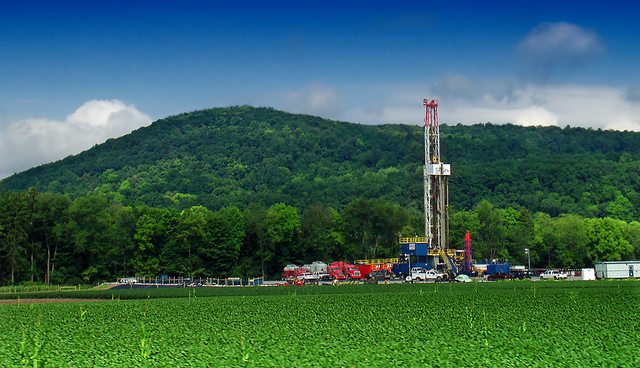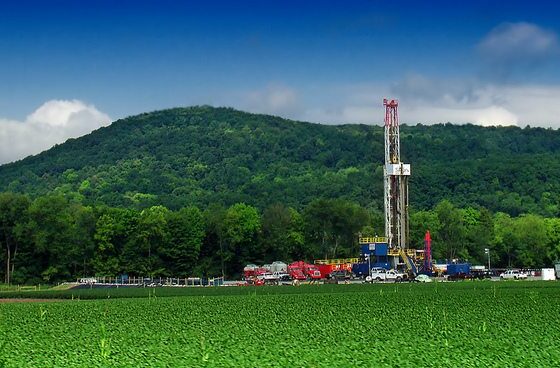

Energy
Fracking boom will increase global carbon emissions, scientists warn
A global fracking boom will not help prevent climate change, as cheap shale gas would displace cleaner renewable energy and actually increase carbon emissions, according to a new study.
Blue & Green Tomorrow is currently running a crowdfunder to ensure its survival. Please pledge.
Because the burning of shale gas, extracted through the controversial process of fracking, releases around 50% less carbon than conventional fossil fuels such as coal, proponents have suggested it could act as a “bridge fuel”.
While investment in renewables is scaled up to meet demand, shale gas could fill in the gaps and replace more polluting fuels, the argument goes.
However, in a new paper published in the journal Nature, scientists warn shale gas would simply replace renewables instead, holding back the development of cleaner energy sources.
Using modelling techniques to forecast market effects, researchers warn that an expanding global shale gas industry could actually seize renewables’ market share, and cause carbon emissions to increase by 10% by 2050.
For the world to even have a chance of avoiding the most devastating impacts of climate change, scientists recommend that emissions be cut by 80% by 2050.
“The high hopes that natural gas will help reduce global warming because of technical superiority to coal turn out to be misguided because market effects are dominating,” explained study co-author Nico Bauer of the Potsdam Institute for Climate Impact Research (PIK).
“The main factor here is that an abundance of natural gas leads to a price drop and expansion of total primary energy supply.”
The study comes at a time when many governments are pushing forward their ambitions to launch a national fracking boom, akin to the one that helped lower energy bills in the US between 2007-2012.
In the UK, ministers have pushed ahead with highly unpopular plans to allow energy companies to frack on private land, without permission. The Coalition government, chancellor George Osborne in particular, have been outspoken supporters of the potential benefits of fracking.
However, the researchers say their study proves that the only solution to climate change will be a binding international agreement to drive down emissions or the enforcement of a global price on carbon.
Such policies, the experts say, could help ensure shale gas can work with renewables, rather than against them.
“The findings show that effective climate stabilization can be achieved only through emissions pricing – this requires international political cooperation and binding agreements,” said Ottmar Edenhofer, chief economist at PIK.
“Technological advances can reduce the costs of climate policies – but they cannot replace policies.”
Aside from carbon emissions, critics of the shale gas industry hold many other concerns over fracking’s environmental impact. The process has been linked to water contamination, an increased risk of earthquakes, and leakage of methane at drill sites.
Photo: Nicholas A. Tonelli
Further reading:
Farmers concerned over effects of fracking on rural land
Fracking: government ignores 99% opposition to change trespass law
Poll: UK perception of fracking improves, but public prefers renewables
Urgent ban on fracking in the US needed, says US actor Mark Ruffalo
Public opposes fracking in national parks and under private land


 Environment12 months ago
Environment12 months agoAre Polymer Banknotes: an Eco-Friendly Trend or a Groundswell?

 Features11 months ago
Features11 months agoEco-Friendly Cryptocurrencies: Sustainable Investment Choices

 Features12 months ago
Features12 months agoEco-Friendly Crypto Traders Must Find the Right Exchange

 Energy11 months ago
Energy11 months agoThe Growing Role of Solar Panels in Ireland’s Energy Future





























